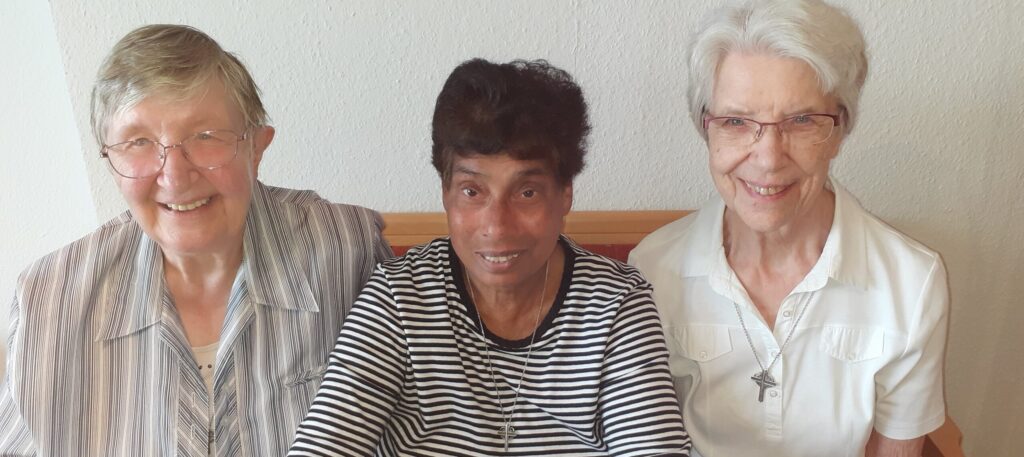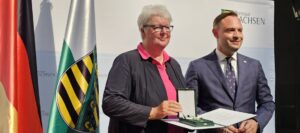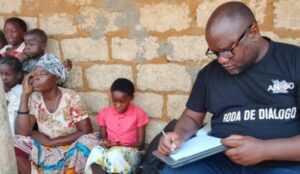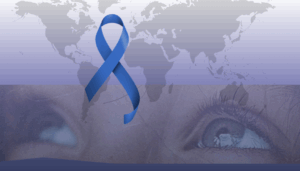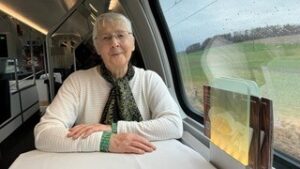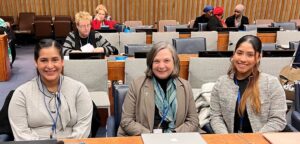By Sr Ingrid Schimansky, Cologne-Chorweiler, Germany (Province of Germany)
People from around 180 nations currently live in Cologne-Chorweiler, Germany, including us three sisters who live very nearby.
The city is home to many people who are poor, unemployed, homeless, single parents, and those on low incomes. There is also an increasing foreign-born population.
In the early 1960s, the number of foreign-born residents was around five percent. Today, this number has risen to around 20 percent.
This has put a huge strain on the city, as migrants from around the world – particularly, in recent years, from Ukraine – make Cologne their home.
Although the city seeks to address these emerging societal challenges, many people are still in great need – many are hungry and unable to meet their daily food requirements.
In 2016, Catholic and Protestant churches, in cooperation with city authorities, began organizing a food bank known in Germany as a Tafel. This nationwide political entity first opened in Berlin 30 years ago to attempt to address the needs of people in difficult circumstances.
We immediately registered to volunteer at this new Tafel since – due to our age – we no longer offer the services we once did from our community for women with psychological and physical disabilities.
For us as sisters, volunteering at the food bank allows us to continue to contribute to our mission of engaging with emerging needs and bringing about a universal culture of justice that challenges inequalities.
The Tafel food bank is entirely run by volunteers who, three days a week, collect unsold or soon-to-expire food from large local shops that would otherwise be thrown away.
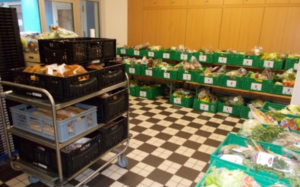 The type and amount of food we receive to distribute can vary, but it may include bread, meat, cheese, fish, fruit, and vegetables, among other foodstuffs.
The type and amount of food we receive to distribute can vary, but it may include bread, meat, cheese, fish, fruit, and vegetables, among other foodstuffs.
Once the volunteers arrive by car with the food, we begin sorting it to ensure that only edible items are distributed.
One basket is prepared for each person collecting food, and the baskets are labeled with the number of people to be fed – usually between 75 and 80 people in need.
To be eligible to receive food, customers – as we call them – must prove their need by providing confirmation of their refugee status or proof of income, welfare, pension, or unemployment benefits.
Every month we are able to provide food to about 1,000 people in need throughout the large catchment area where our customers live.
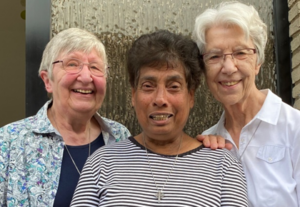 We love this ministry and the chance it offers us to meet with so many people, from those who collect the food and drop it off for sorting to our customers in need who come to find comfort, a friendly face, and have some of their needs met.
We love this ministry and the chance it offers us to meet with so many people, from those who collect the food and drop it off for sorting to our customers in need who come to find comfort, a friendly face, and have some of their needs met.
After our day of volunteering, we return home in the evening quite tired but full of joy and zeal at having made some small contribution to the ‘daily bread’ of our fellow sisters and brothers in need.
